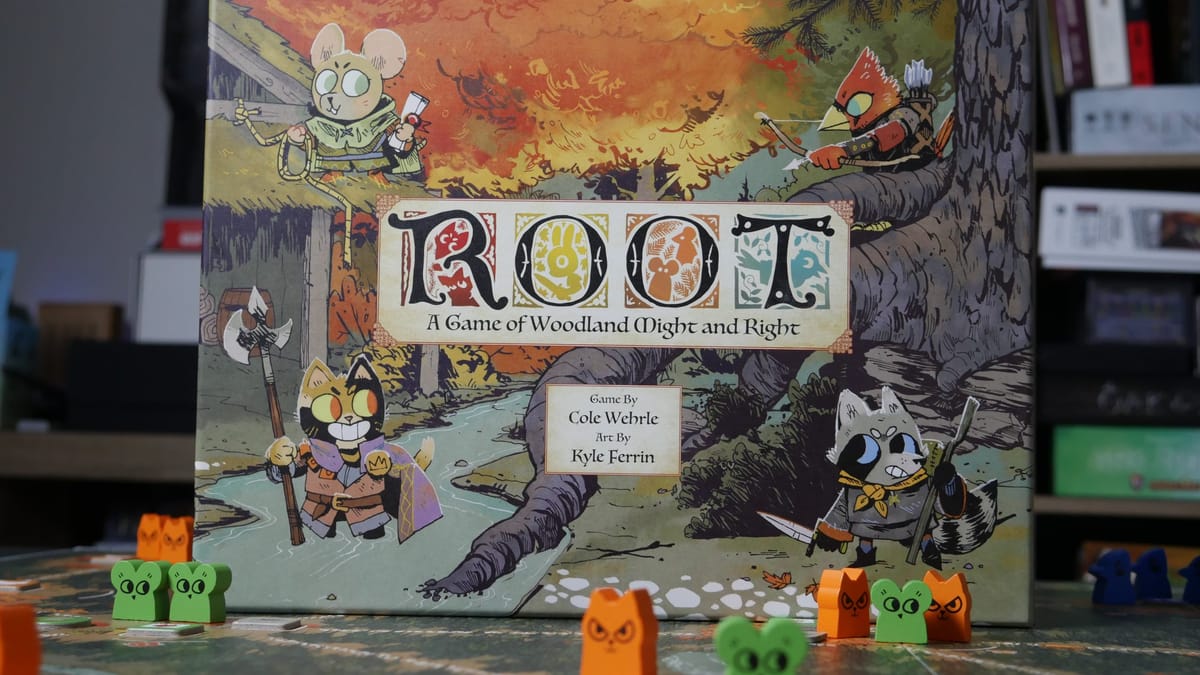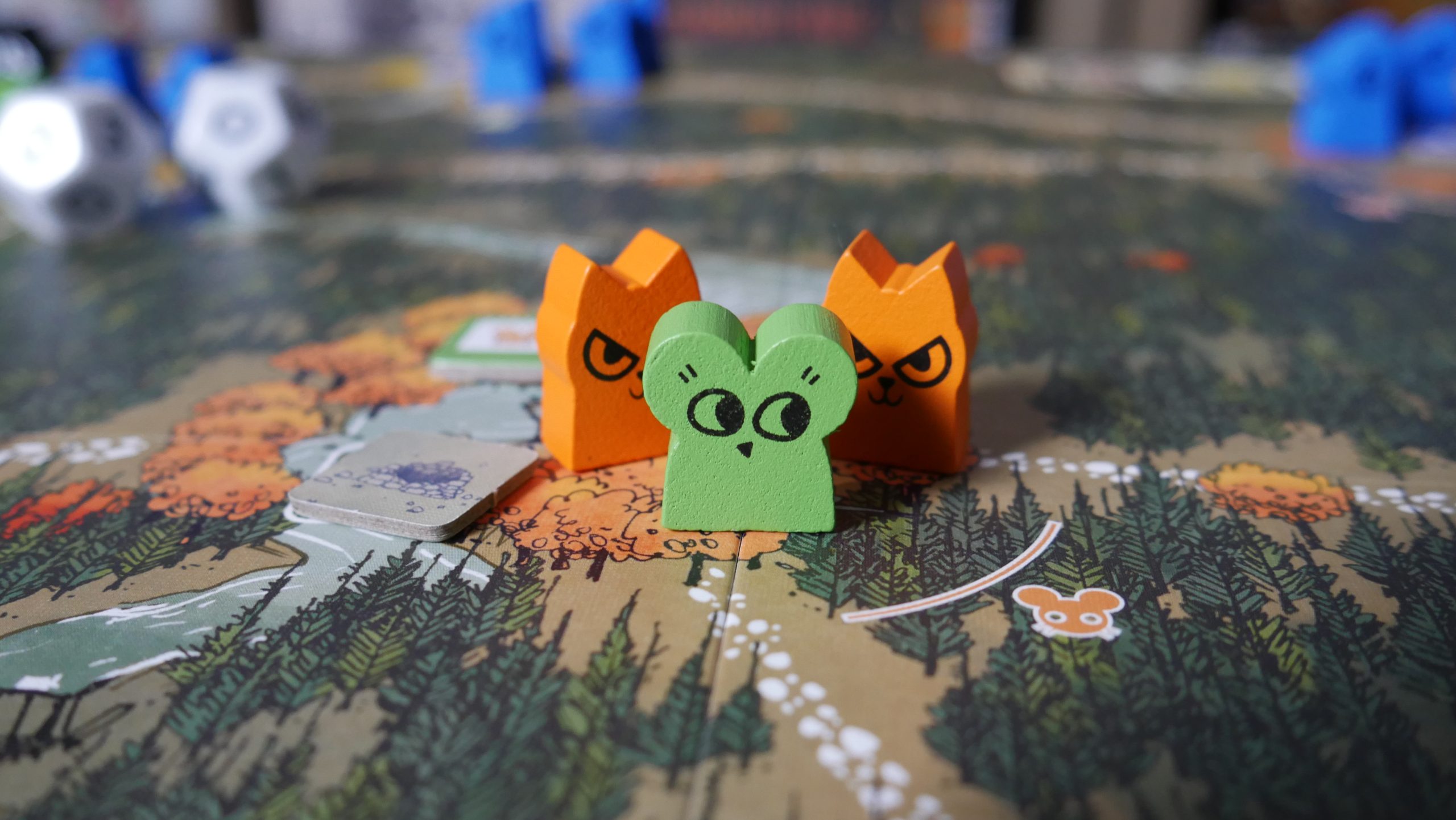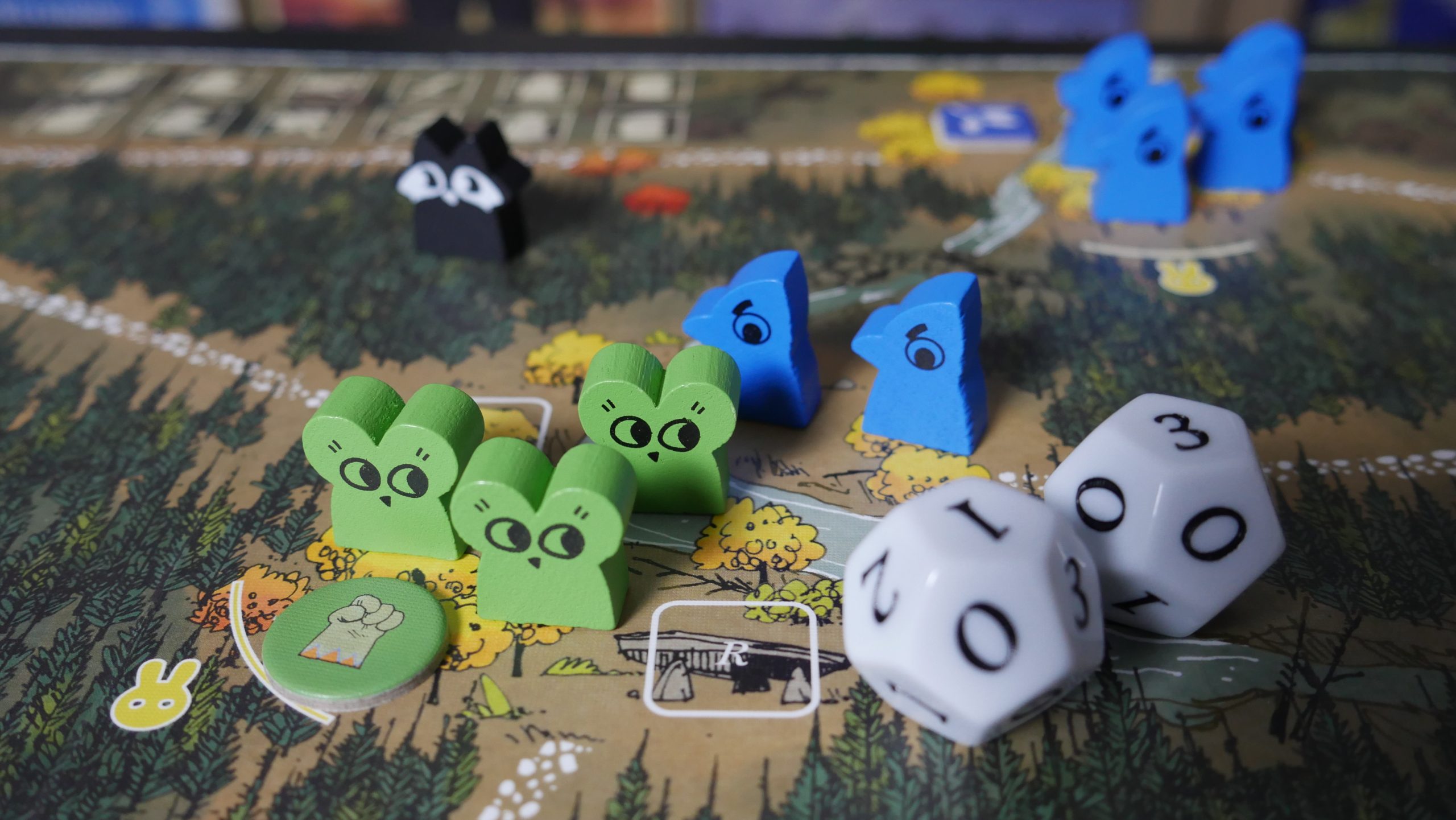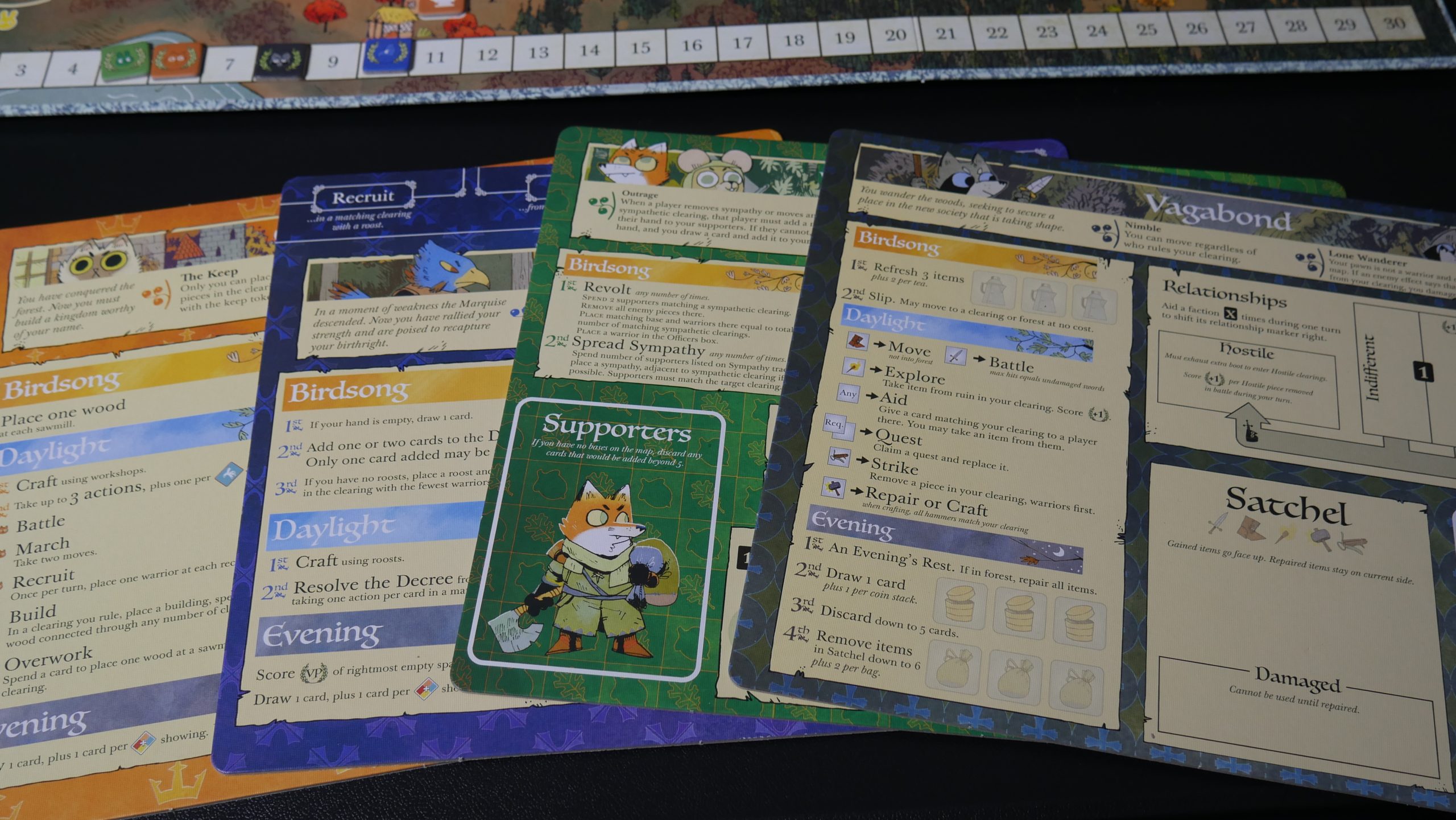
It used to be that asymmetrical wargames were a niche part of the hobby, a subcategory of weird kids right next to those that played 18xx train games. To some extent that’s still the case, but on the other hand, one of the heaviest games you can find in Target is Root, a wargame. Yes, a diluted wargame, but a wargame nonetheless. It’s easily my least favorite of Cole Wherle’s designs, but at some point my personal preference is overridden when a game becomes one of the mainstream faces of the hobby. What I want to do here is take a step back from my distaste to do my job as a critic, dissect Root and examine why it works for so many people but not me.

The heart of Root is its asymmetric factions- cats, birds, woodland alliance, and vagabond. The cats have the most traditional gameplan, construct resource generating buildings and control a path to other sites to drop troop or card-crafting generators. The birds are the other dudes on a map style faction, but they operate in a completely different fashion, gradually adding to their programmed actions each turn until they become an unstoppable juggernaut of feathers. More likely though, they wind up reaching a turn where they can’t fully carry out their program and lose everything, including a chunk of VP and all your non-faction cards in your program, to start back from scratch, albeit hopefully still with a healthy amount of VP that you’re not actually out of the game. The Woodland Alliance is the local resistance group, v, and while they’ve still got a decent amount of meeples to throw around, the name of their game is more finding toeholds here and there, and clearing out entire areas when their opponents become too entrenched until they’ve got the resources to transform themselves into the best vp engine in the game. The last faction is the vagabond, and holy hell do I loathe them, my first hard break with Root’s design ethos. If the other factions feel like the nations in Witcher 3, the vagabond is Geralt running around doing quests for random nobodies the factions don’t care about and occasionally murdering a lonely troop or two and burning their building if their owner overextended themselves. However, Root is a race to 30 VP that they can win, so eventually a faction will have to spend an action or two sending out a proper detachment of at least 4 boys to kick the vagabond’s teeth in and break their equipment, forcing them to retreat into a forest to lick their wounds and lose a round in the process.

It’s this asymmetry that is simultaneously what draws new players into Root and turns seasoned veterans off. In order to keep the factions from being completely opaque to each other, they’re pigeonholed into roles restrictive enough that they become predictable to players with enough games under their belts. Or, in the case of the wholly unpredictable vagabond, fragile enough that they’re easily throttled any time they cross the line. I don’t besmirch people that enjoy the discovery of how factions work and interact with each other, and there’s a glut of expansions out there to keep Root that mystic temple under the mountain with new experiences every time you delve, but but for me, Root is actually a boring, rote game after mastery is achieved. My options with Root were to visit the game infrequently enough or buy enough expansions that I never really had a good grasp of what’s going on, or dig into the game and get bored by it.

Most factions are capable of “going off”, so like many dudes on a map games, Root is actually about hiding how well you’re doing. While there is definitely room for skill expression, it lies in identifying the current threat and who’s in the best position to hinder their progress with minimal hindrance to their own progression. For a couple sessions, that can lead to some fun bickering while people’s analysis differs (or they simply want to shunt responsibility for their own gain), but for me, whenever I walk away from a victory in Root, I don’t feel accomplished, more that either my threat went undetected, or the game lasted long enough that someone had to win, and the timing worked out for me. Ultimately, I’m left with the conclusion that Root’s base game is like a strong pilot episode for a show that isn’t my cup of tea; there’s some good bones here and a lot more content for the folk that want it, and if I dug hard enough I’m sure I’d find some combination of expansion stuff that would more closely match my tastes. But there’s just too much other good stuff out there for me to check out for me to have time for that, and that’s perfectly fine.
Root
Great
Root’s base game is a well-assembled meat and cheese tray; people expecting more may be left hungry, but there’s plenty of people who want exactly what it’s offering, and a whole other set sticking around to order the full meal of expansions afterwards.
Pros
- Excellent production
- Great gateway experience
- Mainstreams a fringe part of the hobby
Cons
- Unrewarding mastery
- Boom or bust gameplay
